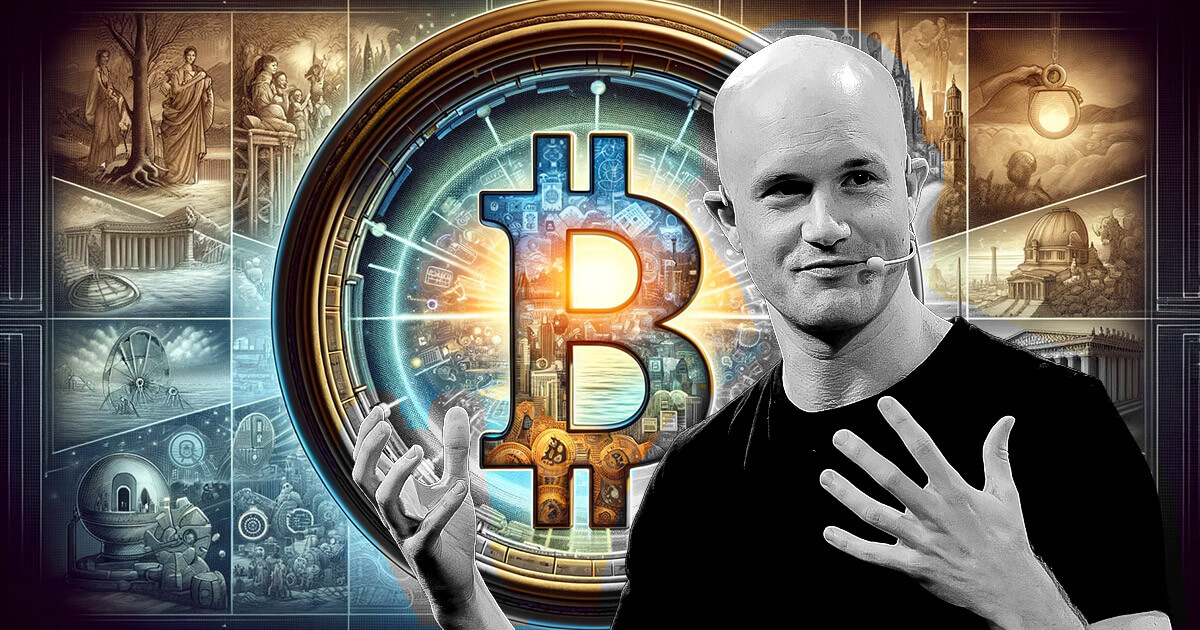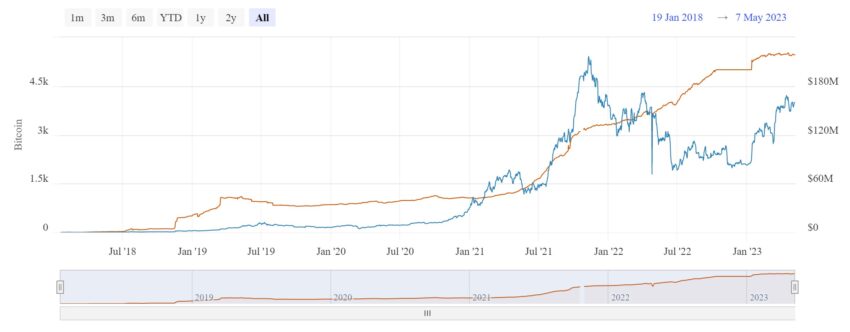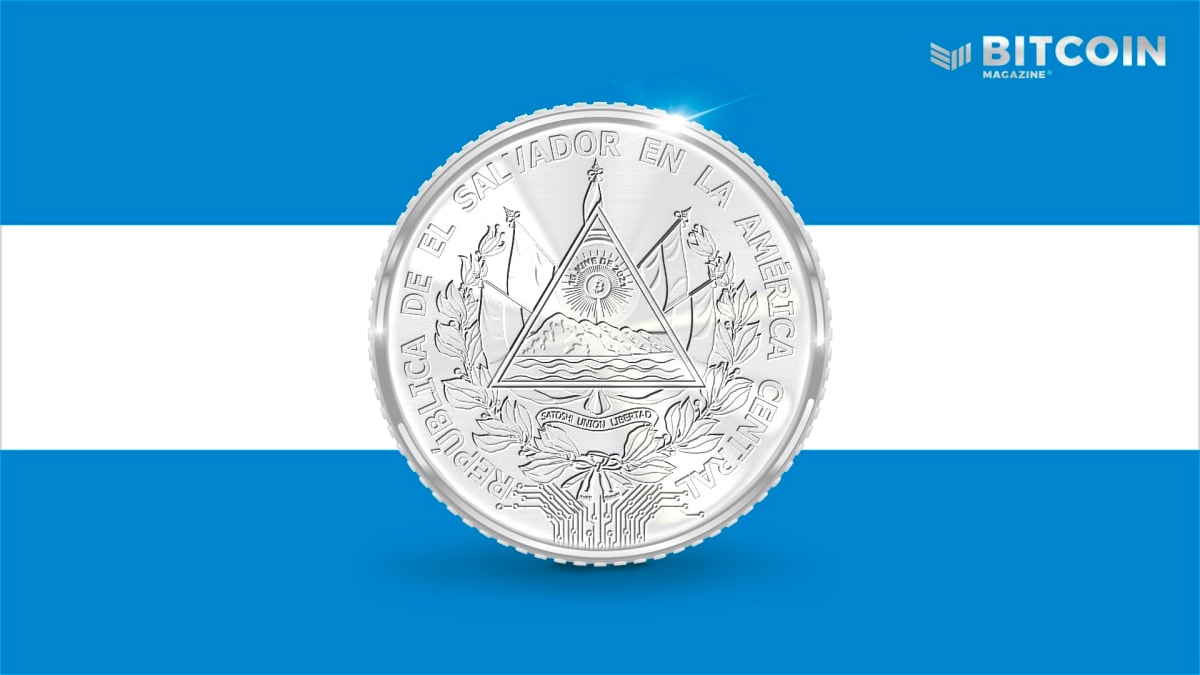2022-6-11 23:30 |
Certain characteristics of Bitcoin create a loss in fungibility. These must be addressed and solved in order for Bitcoin to gain widespread adoption.
Aneta Karbowiak has been writing articles about Bitcoin and cryptocurrency since 2018.
When Satoshi Nakamoto wrote the Bitcoin white paper, he thought of a permissionless system to exchange electronic cash trustlessly. Today, Bitcoin has become a symbol of freedom, and as Edward Snowden says, “Liberty is freedom from permission.” By building a transparent, verifiable ledger, Satoshi introduced trust into the system, though. Trust damages Bitcoin privacy and fungibility, and it ain’t a good thing.
What Is Fungibility?Fungibility means interchangeability for another good of the same kind and indistinguishability of individual units. Gold is fungible. A unit of gold is indistinguishable from another and is interchangeable for another, therefore, they have the same value. One gram of gold will always equal one gram of gold, regardless if it takes the form of an ingot, bullion coin or nuggets. One dollar will always equal one dollar; no matter if it's been touched by a criminal or if it’s been touched by someone famous. You can’t sell $1 for $2 because no one would buy it. Also, no one is interested in where these dollars were or by how many hands they passed before you got them. What people want, though, is to know that the dollar they get will not suddenly lose value and that they will not have to go searching for a special place to exchange them for something else at a lower price.
If a teacher gets paid for work with a non-fungible asset like a porcelain vase, he needs to go looking for a place to sell or exchange it for something he needs. If a doctor gets paid in grain instead of dollars, he will need to look for someone willing to buy grain from him if he wants to pay his rent. No one will work anymore because everyone will be losing time bartering things they don’t want in exchange for something they need. This phenomenon is called a double coincidence of wants. Constriction in selling and buying goods and services means that production decreases.
If the economy is to be efficient and active, it needs fungible assets as a unifying force. Individual inputs should be exchanged freely to sustain free trade and economic freedom. Ignoring the origin and history of inputs is key to fungibility and sound money.
What Is Sound Money?Sound money is money that won the marketability race and is the most used because it has properties like portability, homogeneity, divisibility, durability, acceptability, fungibility and scarcity.
Economist Ludwig von Mises described money as “the most marketable commodity” because it, spontaneously and through competition, becomes the most common medium of exchange. Money that is sound has naturally embedded protection against arbitrary actions by sovereigns to depreciate the purchasing power of a currency through the interventions of their monetary policy. The dollar stopped being sound money when Abraham Lincoln created the Legal Tender Act in 1862 to fund the Civil War and print greenbacks, and it continued its descent with the creation of the Federal Reserve system, gold confiscation by executive order, the abrogation of the gold clause contracts, and collection of unconstitutional income tax. This has led to a 97% dollar loss in purchasing power.
Bitcoin As Sound MoneyBitcoin possesses all seven properties of sound money. Some of them are expressed better than gold, some less. Bitcoin is more portable because it’s enough to remember a seed phrase to get access to your coins. It cannot be stopped by controls at the borders. It does not require secured transport and protection to take it from one place to another. It’s more divisible and perhaps even more durable because it would need the whole world to get nuked to destroy the code it spans from. However, there’s one thing that could preclude bitcoin from remaining sound money, free of government intervention and subsequent destruction of its soundness: It’s the transparency of the Bitcoin public ledger and the lack of privacy undermining fungibility.
Exchanges’ Attack On Bitcoin FungibilityAll bitcoin balances are open to public scrutiny. This invites surveillance of the ledger and controls by different entities like centralized exchanges or law enforcement agencies. It also permits the creation of blacklisted addresses, transaction filtering and censorship. Bitcoin transactions cannot be censored when they occur on the ledger and outside of centralized exchanges, but transaction history of Bitcoin UTXOs is permanent and prone to tainting or tagging according to certain criteria.
If a UTXO comes from a crime like a hack or if it was linked to some sort of black market transaction, then it may be instantly blocked if that bitcoin gets on an exchange. Such action may seem reasonable and lawful.
Exchanges may verify UTXOs up to six hops, which means that if there is no suspicious activity in the six previous transactions, then this UTXO of bitcoin is deemed “clean.” If someone received “dirty” bitcoin from someone else, then this transaction would get blocked, and the person would need to give an explanation or worse, they could be associated with a crime and face criminal charges.
Users reporting transaction rejection and account bans are always more frequent. Following guidelines issued by the Financial Action Task Force (FATF) and recommendations to enhance recordkeeping by virtual asset service providers (VASPs), exchanges started considering interaction with “unhosted” wallets as high risk. These guidelines propose labeling peer-to-peer transactions between “unhosted” wallets and recordkeeping them.
Who’s At Risk Of Being Blocked Or FlaggedAnyone selling products or services for bitcoin or receiving transactions or participating in peer-to-peer trades is exposed to the risk of getting “dirty” bitcoin. A person is usually unaware of this, and if their identity is tied to the transaction, then they may find themselves in trouble with law enforcement.
People who know of bitcoin with rigged transaction history in their possession will try to trade it at a discount because they will be unable to sell it at centralized exchanges. This is a hit to fungibility because it may not be convertible to another bitcoin with a clean history.
To escape the stigma of a UTXO attached to identity or stained by criminal history, people often use tumblers or other kinds of privacy-enhancing tools like CoinJoin. Exchanges started flagging addresses receiving funds from these anonymizers. While the use of privacy-enhancing tools is not indicative of a criminal transaction history, exchanges block and ask for explanations and proof for the origin of the bitcoin, which undermines privacy in the first place.
It’s unknown how deep into transaction history a surveillance firm like Chainalysis, Elliptic or Crystal can go to look for links to suspicious transactions.
In an interconnected world like we have today, where every person is linked to another person by six degrees of separation, it means that potentially, everyone will be linked to a dark bitcoin and could be placed under surveillance or be charged with a crime at a convenient time. As long as this issue concerns a small number of people, it will be brushed under the rug, but when the surveillance will become the oppression of many, people will start to see it as tyranny.
The risk of possessing a dark bitcoin increases with the amount. This is a problem, especially for hedge funds. A few tainted bitcoin could compromise the entire investment pool and decrease its market value through association.
Bitcoin has been sought lately as freedom money, free of censorship and capable of being used as a tool against oppression. However, the use of bitcoin in the trucker protests in Canada, for funding WikiLeaks, or as support for Ukrainians in their war against Russia could be used and, in some instances, was already used, against people who donated. On the other hand, Coinbase blacklisted 25,000 Bitcoin addresses just because they belonged to Russians whose country was sanctioned.
For a counterexample, bitcoin with no history at all, the one coming from the miners, is traded at premium prices because it’s the purest form of bitcoin.
Bitcoin Censorship From The MinersExchanges blocking accounts or rejecting transactions isn’t the only type of attack on fungibility. Some bitcoin miners like Marathon Digital Holdings or Blockseer decided to mine only blocks that are compliant with U.S. regulations, anti-money-laundering (AML) regulations and the Office of Foreign Asset Control’s (OFAC) standards. Marathon filters transactions and rejects those that are not compliant.
Another hit to bitcoin’s fungibility is the miner location and type of energy used to mine bitcoin. The latest tendency is offsetting carbon footprint as an important factor for some miners and institutions. Bitcoin mined with energy using fossil fuels won’t be accepted.
The dichotomy between bitcoin coming from different energy sources or geographical locations does nothing but add oil to the fungibility debate. If government regulations will force miners into mining bitcoin solely with green energy or into accepting solely compliant blocks then we could see a break into two economies: clean bitcoin and dirty bitcoin. It’s not guaranteed and it may only take one rebel miner including a noncompliant transaction that could be enough to break the compliant chain, though.
Fungibility Attack Injected Into The CodeBitcoin covenants which are spending restrictions on UTXOs may be another potential attack on bitcoin fungibility. Controlling how bitcoin can be spent, and by who, means that new rules are introduced to the property rights of a particular UTXO. A UTXO where a covenant was applied is different from a UTXO without it. The price must be different because they are not equal and interchangeable anymore. The ownership becomes more blurred especially if one UTXO can be owned by a pool of individuals. It’s also a potential entry point for a government or bank to control UTXOs. The government could be able to decide how bitcoin is spent.
No Privacy, No FungibilityThis discrepancy in bitcoin’s use and value depending on transaction history is an attack on the soundness of bitcoin as money. It’s also a potential targeted attack on anyone holding bitcoin. It’s enough for an attacker to send a fraction of the dark bitcoin to public addresses to poison them and everyone associated with these addresses. Public addresses of influencers and other public figures would be an easy target involving many individuals and spreading around, depending on the number of hops surveillance agencies decide to include in the trials.
Fungible monies disregard past use and always maintain their purchasing power. For fungibility to work, there can’t be uncertainty associated with the past and future use because, if there is, that means that faith in money as an exchange of value is compromised.
The fall of the dollar and the rise of bitcoin is the effect of compromised trust in the banking system and governments and their policies. If Bitcoin doesn’t solve the fungibility stemming from the lack of privacy, it may follow in the footsteps of the dollar because it will be prone to regulatory capture.
Satoshi himself talked about privacy in his Bitcoin white paper,
“The traditional banking model achieves a level of privacy by limiting access to information to the parties involved and the trusted third party. The necessity to announce all transactions publicly precludes this method, but privacy can still be maintained by breaking the flow of information in another place: by keeping public keys anonymous ... As an additional firewall, a new key pair should be used for each transaction to keep them from being linked to a common owner.”
Unfortunately, he probably didn't envision that most bitcoin would be traded on exchanges with such strict know-your-customer (KYC) and AML rules. He probably didn’t expect that all UTXOs going out from those exchanges would belong to known, identified users.
The SolutionWhile Bitcoin’s transparent ledger provides auditability, the lack of privacy is hurting its fungibility and introduces censorship attacks of different kinds. Increasing bitcoin privacy is one solution. There are multiple projects focusing on privacy (CoinJoin, Dandelion, confidential transactions, Coinswap, etc.), but if privacy-enhanced bitcoin is banned and treated differently, then there’s little to improve the situation. If privacy-enhanced bitcoin aren’t discriminated against, the fungibility will be maintained.
Another privacy-oriented solution would be to promote non-KYC exchanges like Bisq or Hodl Hodl and privacy tools like Samourai wallet with Whirlpool and Ricochet. The more popular it is to own CoinJoined bitcoin, the less fungibility loss. When it comes to covenants, more debate needs to be created around the risk of introducing something into the Bitcoin code that could constitute an easy attack and that would create two sets of different UTXOs that are not convertible to other units.
ConclusionThe gradual loss of fungibility in bitcoin should not be ignored. If regulators continue to force miners to follow certain regulations and exchanges and entities to identify users through the KYC/AML system, we may end up with a perfect oppression tool instead of it being freedom-enabling money. There are other ways to catch criminals and they don’t have to undermine bitcoin’s fungibility. One thing is sure: Bitcoin’s fungibility is tightly connected to privacy and there’s no other way around it. Fungibility can’t be ordered by a government because no government controls Bitcoin. It must be solved on-chain.
While regulators can mandate miners to use only green energy sources, there will always be jurisdictions or miners where fossil-fuel mining will still be possible. It may well be a lost fight to omit noncompliant transactions and quite a costly one. Ultimately, the miners will find out for themselves.
This is a guest post by Aneta Karbowiak. Opinions expressed are entirely their own and do not necessarily reflect those of BTC Inc. or Bitcoin Magazine.
Bitcoin price in Telegram @btc_price_every_hour
Bitcoin (BTC) íà Currencies.ru
|
|














